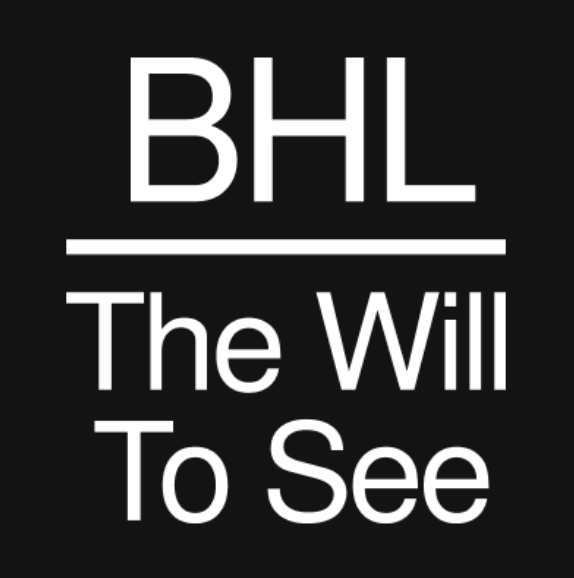Bono left the underground years ago. But now, he’s back, in Kyiv, in the metro, giving a pop-up concert with The Edge. It makes you think of the London Underground in 1940, during the bombings. You tell yourself that Ukraine—attacked, bloodied, ransacked—is a land where every day is Sunday Bloody Sunday. You marvel that an artist of this caliber has chosen to come here, to condemn so passionately the unforgivable fire that Putin is raining down on besieged cities.
The fact that this artist can channel into his mission the energy, stamina, and fraternal grace of his legendary “Jah Love” is a light shining underground, a flame in the Ukrainian darkness, and a spirit of resistance that burns all the brighter in the world’s eye.
Dear Bono: As in Ireland, as in Bosnia, as in so many forgotten African wars where you stood alone in the face of the planet’s drowsy indifference, here you are once again, among men and women who have only their courage and arms. “I sing of arms and of the man” were the first words of the first poem of the Roman West. “I sing of man and his arms” were those echoed back by the greatest poet of the French Resistance. Virgil, Aragon, and now you, Bono.
Bravo, Bono. Thank you, my friend.
In another underground space 800 kilometers away, the last of the Azov Battalion is making its gallant final stand. And in a press conference from the catacombs, delivered by yet another video transmission that the Russians have not succeeded in scrambling, a band of men who have been bombed relentlessly, buried under ash and steel, forgotten by the world, speak of their approaching death, their mounting anger, and the meaning of their sacrifice.
This makes me think, of course, of an upside-down Masada, not 100 meters up but 40 meters down, down below a ground strewn with corpses and rubble. I think also of the battle of Thermopylae, as recounted by Herodotus, when 300 Spartans held their ground against an army of “Persian slaves” and, by delaying their advance before perishing, laid the way for the Greek victories at Salamis and Plataea. No Frenchman can avoid thinking of “The guard dies but does not surrender” uttered at Waterloo, a motto that Victor Hugo said was as resounding as the enemy guns.
The men of the Azov Battalion have been smeared. They are the object of pseudo-intellectual speculations about the weight of the far right in the Ukrainian resistance. I find that sort of talk repellent. As repellent as the wreaths and flowers sent now and then to these heroes whose lives have been a nonstop insomnia for weeks and whose bodies will have no tomb other than the one they die in.
I met Denis Prokopenko, the battalion’s lieutenant-colonel, during a reporting trip to Donbas in 2020. Even then, he was expressing his anger at the impenetrable ignorance of deadline-driven columnists and editorialists: “It’s the same with every resistance movement, isn’t it? At the outset the movement takes all comers; in the press of the first days, it welcomes anyone who wants to fight and knows how. Later you do the hard work and separate the wheat from the chaff. That’s where Azov is. It took on the job, and that’s where it stands, the jewel of the Ukrainian army.” I can only imagine the rage he feels today. I can understand his despair. Baseness is our enemy…
But the most revolting thing about the Victory Day just past is how so many took at face value Putin’s shameless appropriation of the heritage of the war against Nazism. It goes without saying that the Red Army’s contribution was decisive. And just as we owe an incalculable debt to the GIs and Tommies who landed on the beaches of Normandy, so, too, we owe an equal debt to the millions who fought and died in what the Russians call the “great patriotic war.”
But the Red Army belonged to the USSR. The USSR was Ukraine as much as it was Russia. And, when you consider the sacrifices of the former, the least that can be said is that those sacrifices were no less great than those of the latter. Have we forgotten that the First Ukrainian Front, in which, as its name indicates, Ukraine was massively represented, was on the front line of the battles of 1944–45 in Poland, Czechoslovakia, and Germany? That it was this army that carried out the Silesian Offensives, the Siege of Breslau, and, in large part, the Battle of Berlin? Do we have the right to forget that of the three brave men who climbed to the top of the Reichstag to pull down the swastika one was a Ukrainian? Can we overlook the fact that it was a Ukrainian tank commander, Major Anatoly Shapiro, who had the terrifying honor of being the first of the allies to enter Auschwitz and, if these words have any meaning here, to liberate the survivors? The symbols, like Nietzsche’s evidence, exhaust the truth.
But at the very least those symbols should instill caution in anyone tempted to walk into the trap of the spectacular celebrations organized by a tyrant trying to pursue the “denazification” of Zelensky’s Ukraine right down the drains of Mariupol. It is Putin’s minister, not Zelensky’s, who is saying that Hitler had Jewish blood. Putin’s army, not Zelensky’s, that is bombing the site of the Ukrainian holocaust at Babi Yar. And the only denazification that needs doing now is of a Russia sick of itself, a Russia that has forgotten everything and learned nothing, a Russia that today is the capital of crime in Europe.

Official social networks